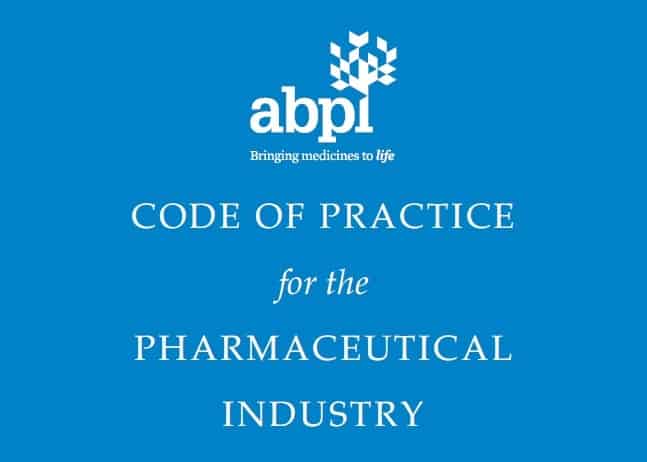
Regulation of drug promotion ‘should be toughened up’, study finds
pharmafile | January 29, 2016 | News story | Medical Communications | ABPI Code, Department of Justice, PMCPA, Prescription Medicines Code of Practice Authority, Sunshine Act, marketing, off label, off-label, promotion
The voluntary code of conduct system that regulates the pharma industry’s promotion of off-label prescribing has a ‘limited capacity’ to uncover deceptive practices compared to the Government-led approach in the US, a study suggests.
Researchers urged the UK to beef up its legislation by introducing a UK Sunshine Act, similar to the laws in the US, to increase transparency and uncover the true scale of off-label promotion within the UK pharma industry. Currently, the Prescription Medicines Code of Practice Authority (PMCPA) only investigates ‘the tip of the iceberg’ – and not the full extent of illegal or unethical practices in the industry, researchers argue.
In the first study to systematically investigate evidence of off-label promotion in a European country, researchers considered 74 cases of off-label promotion in the UK, involving 43 companies and 65 drugs. They compared their nature and outcomes with cases and investigations in the US that were initiated by whistle-blowers and investigated by the US Department of Justice (DoJ).
The researchers concede that their study provides an incomplete view of off-label marketing in the UK and the US. They found that UK rulings cited efforts to expand drug use to unapproved indications (50%), diseases (39%) and dosing strategies (38%). Competing companies lodged the majority (57%) of complaints whereas prescribers lodged only 22% of the complaints.
Almost half of the 43 violating companies were found to have promoted products off-label more than once in the UK, and about a quarter were ruled in breach three or more times. Companies paid around £260,000 in fines during the study period – at a rate of £3,500-£4,000 a time, “typically less than a company would pay for a single print advertisement,” – although this is £15,000-£20,000 if an audit of company practices is required.
While several US whistle-blower cases alleged multi-faceted and covert marketing campaigns, UK rulings typically referred to a single advertisement. There were only eight UK rulings that had also been investigated in cases investigated and settled by the DoJ in the US.
An example is the promotion of the antipsychotic Abilify (aripiprazole) for use in non-schizophrenic psychotic disorders. US lawsuits revealed highly orchestrated sales operations, such as paying speaker fees to doctors to influence their prescribing or having a sales force tasked with promoting off-label uses. In contrast, the UK rulings—involving the same companies marketing the same drugs—referred only to claims and images in single adverts. In the UK Bristol-Myers Squibb and Otsuka were charged £2,500, while Otsuka settled for $4 million in the US.
The researchers said their findings “raised critical questions regarding the impact of different regulatory arrangements in deterring illicit marketing.”
They added: “It is reasonable to consider whether the UK self-regulatory system could be strengthened to better protect public health.”
Writing in the journal PLoS Medicine, Dr Shai Mulinari and colleagues at Lund University in Sweden, and King’s College London conclude: “UK authorities should consider introducing increased incentives and protections for whistle-blowers combined with US-style governmental investigations and meaningful sanctions.”
The researchers called for improved investigative capacity, more severe financial sanctions, and stronger legislation in the UK, to increase incentives and protections for whistle-blowers and encourage US-style investigation of allegations.
Lead author Dr Mulinari told Pharmafile.com the introduction on a Sunshine Act in the UK would be a ‘very good idea’, as it would go further than the plans by the ABPI and the EFPIA for disclosure of payments.
“We do not have evidence of companies behaving in the UK in the same extreme way as has been alleged in the US. But it is possible that this is simply because the US system is better at detecting such practices. This is not to say that companies behave exactly the same everywhere – they adapt to local conditions – but we are talking about exactly the same companies, including UK companies such as GSK.
“Moreover, some of the practices alleged and demonstrated in the US involved introducing bias in the scientific or medical literature, and this will have impact beyond the US, even if it was carried out in the US.”
And Dr Mulinari said the UK could learn from the Government-led system in the US. “The main lessons [from the US] are that external complainants give a very limited view of illicit or unethical practices (tip of the iceberg), and that there needs to be wide-ranging and prolonged investigations of accusations, as well as serious support, protection and incentives for whistle-blowers. In severe cases, high-level executives in the companies should also be investigated.
“The PMCPA already investigate complaints from employees, and should continue doing so. However the PMCPA lacks the capacity and power to do what the Department of Justice does in the US. We cannot, therefore, expect PMCPA to do a government’s job. Potentially severe illegal activities in the UK should be investigated via US-style governmental mechanisms.”
Update 12:04pm – In a statement the PMCPA says that, while there will always be critics of self-regulation, “the commitment of the UK pharmaceutical industry to a complaints system that is as open as possible demonstrates the seriousness with which the industry takes its responsibilities.”
The ABPI Code of Conduct regulator pointed out the study was not an exact comparison of practices and cases in the UK and the US.
“The study does not reflect the difference in the healthcare systems or that the regulatory regime in the UK is different from the US. Also while the ABPI Code relies on complaints to be made, the PMCPA can take up media reports and other public criticisms as complaints.
“The study does not appear to compare like with like in terms of complaints mechanisms, time periods or legislation. PMCPA rulings are cited between 2003 and 2012, and the US whistle-blower initiated cases between 1996 and 2010, with reference made to settled cases through June 2015.”
Heather Simmonds, director of the PMCPA, says: “The PMCPA expects and welcomes scrutiny and the detailed published reports are available for anyone to review and are a powerful sanction when breaches are ruled.
“The aim of the Code is to ensure that promotion (and other activities) are carried out within a robust framework to support high quality patient care. The Code clearly prohibits the promotion of a medicine or an indication prior to receipt of the necessary marketing authorisation. The PMCPA has issued detailed guidance on these requirements. If anyone – health professional, employee, member of the public, media organisation – has concerns that a company might be in breach of the Code they are invited to submit a complaint to us.”
Lilian Anekwe
Related Content

Exscientia buys Austrian cancer cell screening company for €50 million
UK-based AI pioneers Exscientia has announced the purchase of rival AI firm Allcyte for €50 …

Deloitte acquires Iperion Life Sciences Consultancy
Deloitte have announced the acquisition of Iperion Life Sciences Consultancy, a globally-operating firm working to …

US Department of Justice charges Teva with generic price fixing
The US Department of Justice (DOJ) has charged Teva Pharmaceuticals with conspiracy to fix the …








